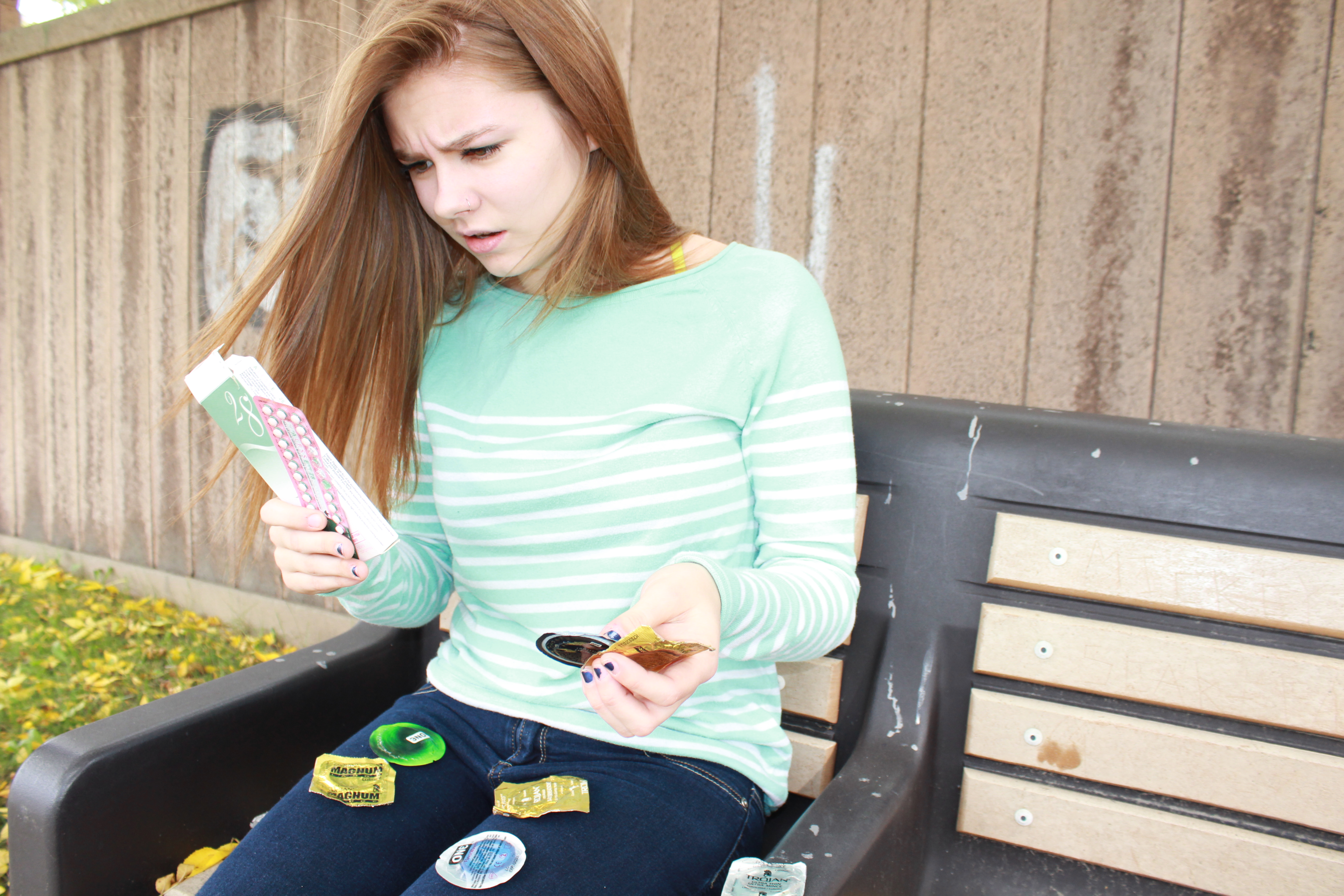Debunking popular birth control myths


It’s been drilled into our heads since middle school: don’t get pregnant if you’re not ready. We all know that it’s not ideal to get pregnant while a student. We also know that it’s not always realistic to remain abstinent; university is a time of experimentation. So you take the pill or use condoms to prevent any unwanted pregnancies from happening. We use these methods so casually that sometimes we forget to ask ourselves if we’re using them correctly or if we even understand them at all. Marilyn Nieboer, Wilfrid Laurier University’s health educator at the health a
nd development centre, identified several myths surrounding birth control.
“If I’m on antibiotics, my birth control pill will still work”
With cold and flu season coming around, girls on the pill should take note of how certain medications can affect their birth control pills. “Some antibiotics, not all of them, but some antibiotics decrease the effectiveness of the pill,” Nieboer claimed. She recommends that if your doctor prescribes you an antibiotic, make sure to ask him or her if it will affect your pill and use condoms.
“I forgot to take my pill but I’ll just take it tomorrow”
Ladies, it happens. Sometimes we just forget.
Nieboer instructs that when you realize you forgot to take your pill, take it right away and then take your next one at your scheduled time. This may mean you’re taking two pills in one day. If you find you’ve missed two days in a row, take two pills at your next scheduled time, then two the next day. If you miss a pill or two, you should be using a back-up method, like condoms, for the rest of the month.
The Region of Waterloo Public Health stated, “when taken correctly, the pill is more than ninety-nine per cent effective in preventing pregnancy,” but this is only if taken correctly.
“If I’m on the pill, I can’t get pregnant”
The whole purpose of taking birth control is to prevent pregnancy. Although this is true, Nieboer claimed that it takes approximately one month for the pill to start working. When you start the pill, you aren’t prevented from pregnancy after the first few days; it has to work its way into your system.
“Guys, if she’s on the pill, you don’t need to use a condom”
If she’s on the pill and taking it correctly, chances are you’re safe from pregnancy. But what about sexually transmitted infections and diseases? “The birth control pill is great for contraception, but its not going to protect you from STIs,” Nieboer said. You both don’t know each other’s sexual history, so be safe.
The morning-after pill has always been the most mysterious method of birth control. Despite popular belief, it is not comparable to an abortion. The morning after pill can be taken up to 72 hours after the unprotected sex occurred, but it is most effective in the first 24 hours. You can get it without a prescription at a pharmacy or at Health Services.
Nieboer clarified that the morning after pill acts as a double dose of birth control, and stops the egg from being released. “It prevents pregnancy before conception,” she remarked, unlike an abortion, which terminates a pregnancy after conception.


